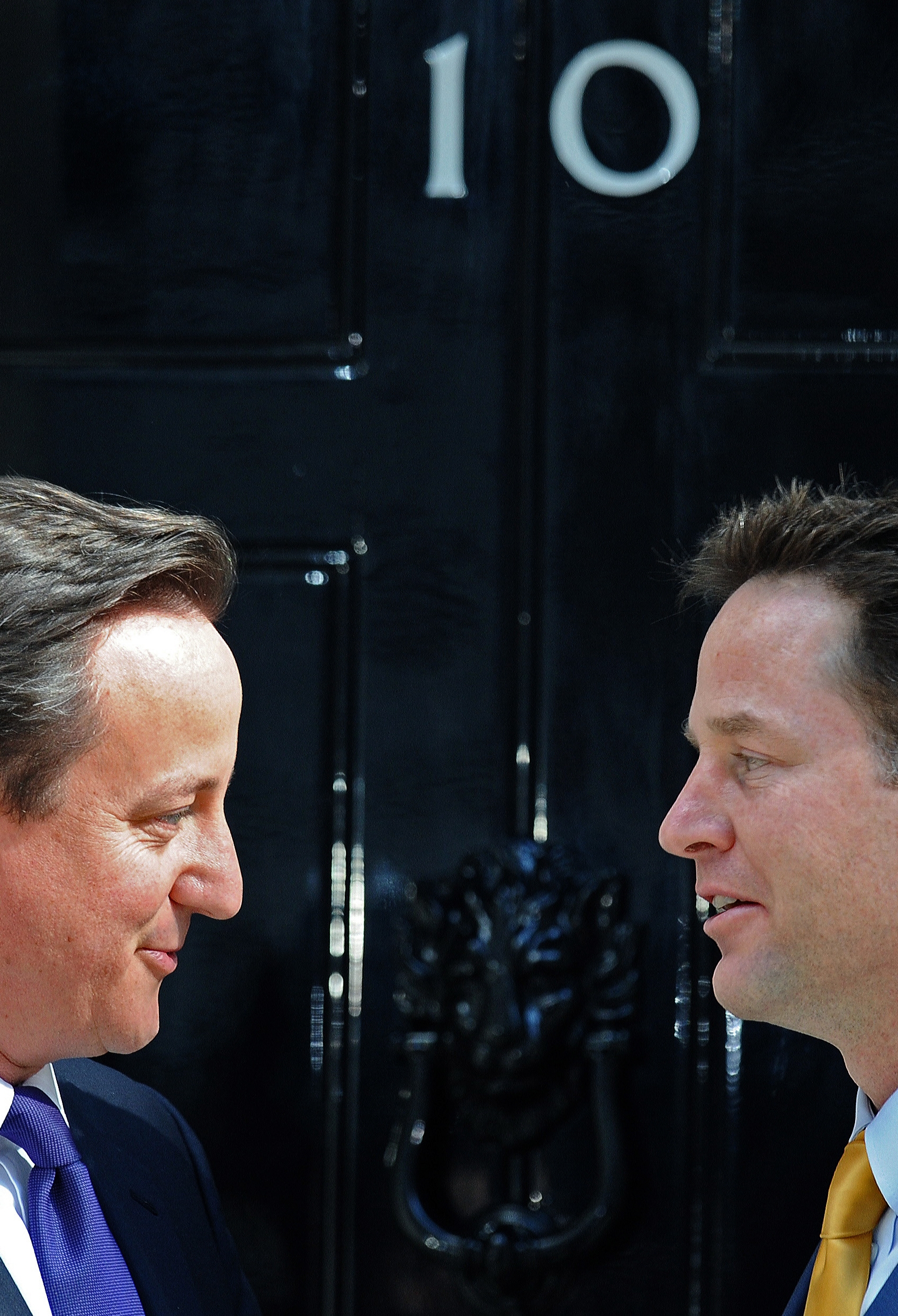 One of the things that critics of the LibCon coalition keep coming back to is the
question of what will happen in European, local and other elections. Will the two governing parties stand against each other? And how can they differentiate themselves when they support the same
policies? To many, it seems like David Cameron and Nick Clegg are suggesting that we all walk backwards – odd, uncomfortable and unlikely to ensure progress.
One of the things that critics of the LibCon coalition keep coming back to is the
question of what will happen in European, local and other elections. Will the two governing parties stand against each other? And how can they differentiate themselves when they support the same
policies? To many, it seems like David Cameron and Nick Clegg are suggesting that we all walk backwards – odd, uncomfortable and unlikely to ensure progress.
But why is this so odd? This kind of electioneering happens in many other countries. Take Denmark. There, a Liberal-Conservative government has been in power for almost a decade and across several elections, yet the two governing parties have gone to elections as separate parties, each with their own platform. It also happens in Britain, in a way. The Conservatives and Lib Dems form coalitions in a number of cities, even though the parties have fought a local election against each other. Coalitions were formed in Scotland and Wales on the same basis.
How can all this work? Simple. Just because the two parties are in a formal coalition does not mean that they stand for exactly the same things. The Lib Dems are always going to be to the left of the Conservatives. They have a foot in the Social Democratic tradition and one in the Liberal tradition. Though some of their members may look and sound like Tories, particularly in the South West where they fight against Tory candidates, they stand for something different. The two parties will go to the next election arguing that a vote for the Lib Dems is a vote to pull the Cameron-Clegg government further towards the centre, and even to the left, on key issues.
The Tories, in turn, will have to argue either: a) that they made the coalition government work, but now that the recession is over – i.e. in 2015 – Britain needs single-party rule, or b) that a vote for the Tories is a vote to keep the government focused on a centre-right agenda. If the Tories aim to do the latter, because the polls at the time of an election suggest another hung parliament, they will have to be ready to give the Lib Dems a few wins. That is what happens in Denmark and Sweden: the leading party allows the junior partner to claim a few victories on issues that are unlikely to matter to their core vote.
The bigger question is on electoral reform. So far, David Cameron is making coalition government work so well that it could become harder for him to argue against electoral systems that encourage coalitions. If they are so bad, then how come he is making it look so easy? That is something to worry about, not how the two parties are going to work together and then fight against each other.







Comments